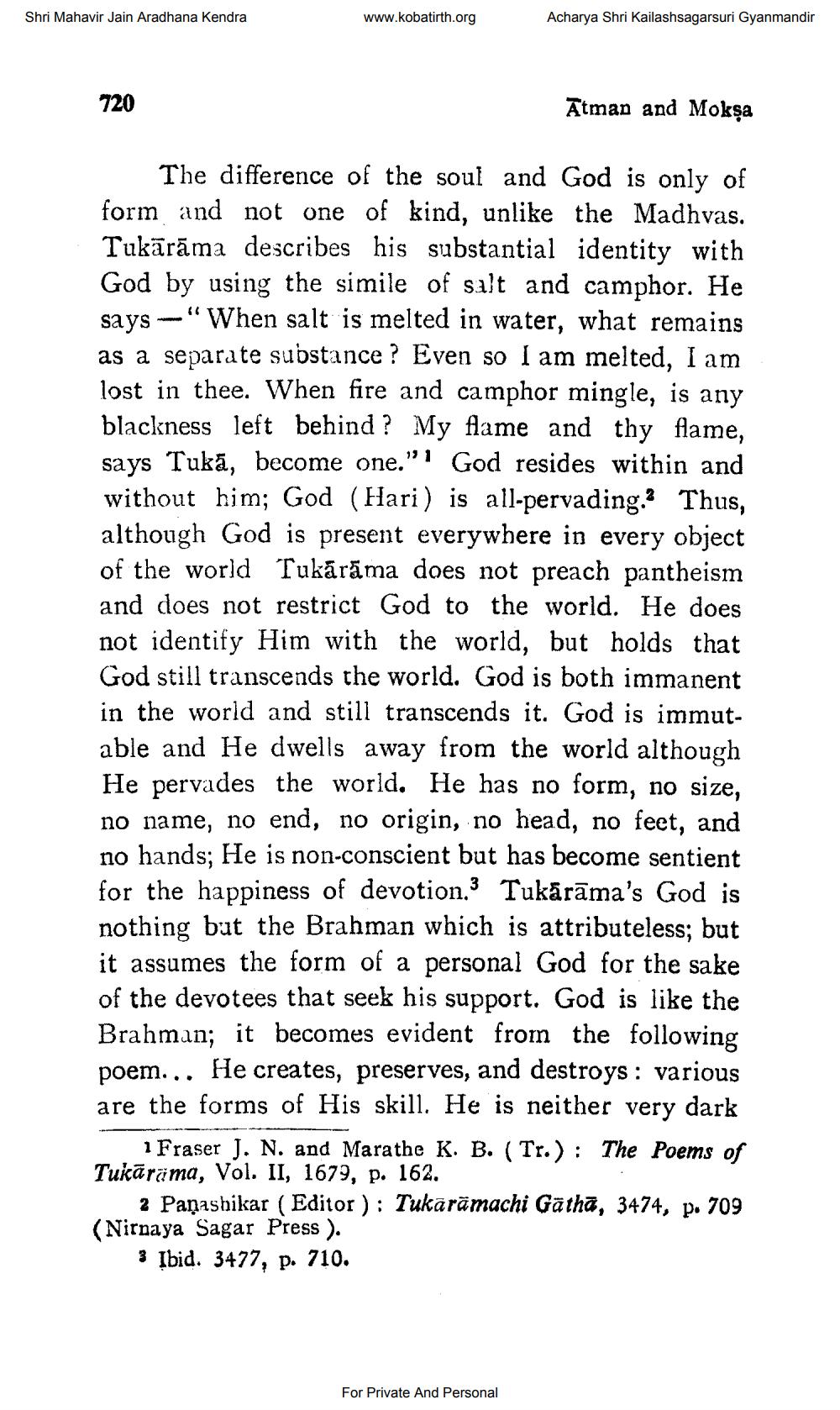________________
Shri Mahavir Jain Aradhana Kendra
www.kobatirth.org
720
Atman and Mokṣa
The difference of the soul and God is only of form and not one of kind, unlike the Madhvas. Tukarama describes his substantial identity with God by using the simile of salt and camphor. He says "When salt is melted in water, what remains as a separate substance? Even so I am melted, I am lost in thee. When fire and camphor mingle, is any blackness left behind? My flame and thy flame, says Tuka, become one." " God resides within and without him; God (Hari) is all-pervading. Thus, although God is present everywhere in every object of the world Tukārāma does not preach pantheism and does not restrict God to the world. He does not identify Him with the world, but holds that God still transcends the world. God is both immanent in the world and still transcends it. God is immutable and He dwells away from the world although He pervades the world. He has no form, no size, no name, no end, no origin, no head, no feet, and no hands; He is non-conscient but has become sentient for the happiness of devotion.3 Tukārāma's God is nothing but the Brahman which is attributeless; but it assumes the form of a personal God for the sake of the devotees that seek his support. God is like the Brahman; it becomes evident from the following poem... He creates, preserves, and destroys: various are the forms of His skill. He is neither very dark
Acharya Shri Kailashsagarsuri Gyanmandir
1 Fraser J. N. and Marathe K. B. (Tr.): The Poems of Tukārāma, Vol. II, 1679, p. 162.
2 Panashikar (Editor): Tukaramachi Gāthā, 3474, p. 709 (Nirnaya Sagar Press).
3 Ibid. 3477, p. 710.
For Private And Personal




